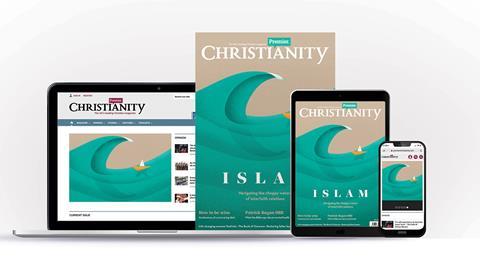
True story: One day Sam (a millennial) asked his dad if he could have his Bible when he died. As a young boy he’d watched him pore over the pages of this gigantic book, he’d watched his eyes light up and sometimes fill with tears as he recounted the stories, the wisdom, the characters contained within. And now, years on, it was as though that book - though shabby and worn - had come to represent something of his beloved dad.
Moved by his son’s request, his dad gifted him the Bible sooner than expected - when he married and moved abroad. The pain of goodbye was neither underestimated nor unexpected. What surprised him was the internal tug of war as he gave his Bible away. It seemed the son was right – that book had indeed become a part of him.
Joyce Meyer shared a similar sentiment while preaching some years ago at a conference. She said she felt God speak to her in that moment to give her Bible away to a lady on the front row. Although she wanted to obey God, she recalled how internally she’d hesitated. That Bible was more than just a book – the highlights and footnotes, the countless hours of study and research, the moments of revelation and insight, had become precious reminders of her journey of faith.
Our Bible, it seems, tells us something of our relational history with God. Charles Spurgeon said, "A Bible that’s falling apart usually belongs to someone who isn’t." Placed in the hands of a disciple of Jesus, the Bible becomes not only the source of life, hope, wisdom and strength but indeed an outward sign of those very things being made manifest in our own lives.
Will all this be lost as printed Bibles are replaced with Bible apps? Will we lose a sense of magnitude as our electronic assistant scours the book for the relevant passage? Will we learn that Judges sits in between Joshua and Ruth or that Acts comes before Romans? And does it matter if we don’t? Will those around us ever discover what captures our attention or will they simply assume we’re just reading another email? And will we have something real and tangible, a record of both God's story and our own story to pass on to our children?
These are just some of the many questions we grapple with at the Bible Society as we seek to embrace change. But the bottom line is this: we believe that when people engage with the Bible, lives can change – for good. For us this is not a battle of paper versus technology but rather a dynamic partnership that propels the word of God into places, languages and formats we never dreamed possible.
These are exciting times. The word of God is indeed "alive and active". The question is are we?
Relationships are dynamic and our relationship with God and his word should be no less so. These technological advances force us to engage differently with the Bible, to consider afresh how we might imbibe, communicate and live out this life-sustaining word so that future generations will also be drawn to its pages.
Ultimately, the real measure of our relational history with God is not about whether the word is written on tablets or paper, but how deeply that word is written on our hearts.
Howard Barker is Head of Legacy Giving at Bible Society. We invite you to help future generations engage with the Bible. Find out more at christianlegacy.co.uk
Click here to request a free copy of Premier Christianity magazine





























